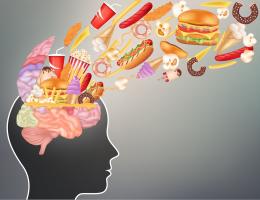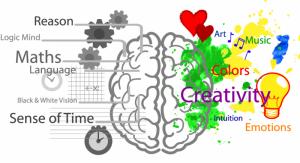
 For some people learning seems easy. They are able to pay attention, readily absorb new information by listening or reading, and they are also able to retain and use their new knowledge.
For some people learning seems easy. They are able to pay attention, readily absorb new information by listening or reading, and they are also able to retain and use their new knowledge.
Other people experience mental blocks that make it difficult for them to pay attention, to understand, and remember the things they read or hear, and to express themselves verbally or in writing. They may also have problems mastering specific tasks such as math, reading, and writing. Some may struggle with learning motor tasks, such as sports, and have difficulties with balance or hand-eye coordination. All these challenges are connected to various forms of learning disabilities.
A common form of learning disability is dyslexia, which is a problem with the communication between the two hemispheres of the brain. Learning disabilities may be related to an inability to pay attention, such as Attention Deficit Hyperactive Disorder (ADHD). Some are simply caused by a child falling behind in certain core skills, such as reading, writing, or math. Learning difficulties can cause behavioral problems such as being restless or impulsive, being disorganized, acting out in a classroom, and finding it difficult to change.
Many of the problems associated with learning disabilities have a physical cause. A lack of proper nutrition and rapid swings in blood sugar levels may interfere with the ability of the brain to function properly. The brain may have been injured due to alcohol use or drugs during pregnancy, exposure to heavy metals, or a traumatic brain injury. It may also involve difficult experiences (trauma or abuse) in childhood. A lack of normal early childhood experiences such as crawling and interacting with the environment can also be factors in the development of learning disabilities.
Looking for Root Causes
Although there are no quick and easy answers to solving learning disabilities, in this issue of Sunshine Sharing we’ll cover the general principles that will help you get started. There are three main root causes to look at when overcoming learning disabilities.
The first is nutrition. The brain needs nutrients to function properly and many children don’t get the nutrients they need for proper brain development and function. The excess consumption of empty calories, like refined carbohydrates, can cause swings in blood sugar levels which affect both mood and focus. So, it is important to look at both dietary improvements and nutritional supplements that can help to improve brain function. This should be foundational to working with any learning disability.
The second root problem is environmental toxins. It has long been known that multiple chemicals, including heavy metals like mercury and lead, can interfere with mental function. The number of children suffering from problems like Autism Spectrum Disorder (ASD), ADHD, depression, anxiety, and various learning disabilities exploded in the 1990s and has continued to grow. At the same time, test scores reflecting comprehension of basic skills such as reading and math have dramatically declined.
This increase in learning problems can be attributed in part to a rise in environmental toxins, which is why working to reduce exposure to toxins and detoxifying is an important principle for solving learning disabilities and improving brain function.
In addition to these root causes, physical activity is very important for healthy brain development. There are exercises that can help correct dyslexia and other learning problems. There are also herbal remedies and flower essences that you can use to support brain health.
Become a Member
Steven Horne's monthly member program is a way for you to get great information about herbs and natural healing to build your herbal business. Including the ability to share issues of Sunshine Sharing like this one. Click here to learn more.


